Back Home
Improvement
Plan
Aeres TCI-alumnus Chandi:
“Essential in making changes”


”
We work with government projects to improve production and nutritio.

Chandi Asoka is a veterinary surgeon from Sri Lanka. She works in the Kandy district. In her area you find dairy farmers, small-scale poultry farmers, and so-called backyard poultry farmers, and there are some goat farmers. Chandi is responsible for the livestock extension programme in her region. She mostly works with commercial, small-scale poultry farmers.
After her return to Sri Lanka, Chandi organised a meeting with the farmer that she had selected for her Back Home Improvement Plan. “I visited him and some other farmers in the region and first of all they were very eager to hear what I had learned. They were really open to the advice and some even started to make changes straight away. As I explained, most of our farmers are barely educated and by sharing the knowledge I had gained at ATCI, I was able to help them without it costing a lot of money. It really helped them to improve their production and skills. I shared information on how to improve their feed, how to prevent the livestock from diseases and how to improve their management and I was glad to hear that after a few months they had positive feedback. They had been able to reduce the mortality rate and increase their production. Even more important is that they can pass that knowledge on to the next generation and to other farmers in their region. The farmer I had picked for my Back Home Improvement Plan has now even started to train other farmers in his region as well. That’s wonderful if you ask me!”
Chandi explains that it is wonderful to realise that an entire region of farming business can benefit from her knowledge and experiences gained at ATCI. “It is an honour to be able to help them get better!”
With the Back Home Improvement Plan students make a connection between two different worlds. For almost all of them, the situation in The Netherlands is incomparable to their home situations. There are differences in technologies, but also in work ethics, laws and the work environment. “Even country-wise, there are a lot of differences”, Chandi states. “For example, the climate, but also the development. We simply cannot copy and paste the way it is done in The Netherlands and implement it back home as is. No, we need to think on how we can take the lessons we learn and make them fit in our home situation. So, I feel like the Back Home Improvement Plan is a wonderful way to do so.”
Chandi explains that there a lot of differences between The Netherlands and Sri Lanka. “Back home you will barely find farmers that have been properly educated on their jobs. Most farmers are learning from the internet, or it has been passed on from generation to generation. They don’t have precise knowledge on how to go about animal management, or how to feed and things as such. So, there is a lot that we can improve, but on the other hand there is not much financial space. The farmers are not rich enough to do big investments. So, the question that I had to answer was: “How can we make changes, without it costing them too much money? And the answer to that was by training them and sharing knowledge.”
The abbreviation BHIP stands for Back Home Improvement Plan, an important part of the training at ATCI. The BHIP encourages students to translate whatever they learn at ATCI to practical output for their situation at home. “Before coming to Aeres, I was asked to select a farm in my locality”, Chandi explains. Chandi chose for a small-scale commercial poultry farm. “We were then given some topics of information that we had to collect information on. For example, what was the current situation in the farm? What were the challenges? And then, at the end of our training we made a plan on how to improve the production according to what we had learned. When the plan was finished, we had to present it. We also had to explain how we were going to improve that farm up to a maximum profit, while maintaining good management and also improving their feed quality.”
In her area the farmers work under the supervision of the government. “We work with government projects to improve production and nutrition.” And from that point of view, Chandi studied at ATCI for a period of ten months. “I studied International Poultry Management and Animal feed from August 2018 up until May 2019”, Chandi explains. Her time at ATCI was valuable to her as she was able to gain a lot of practical experience there. “During my undergraduate study here in Sri Lanka, I was not exposed to practical experience. So being able to get that at Aeres was very good. We worked in teams of international students under the supervision of the trainers. The hands-on way of teaching and actually gaining knowledge from experience, results in development of skills that will remain for a lifetime.”
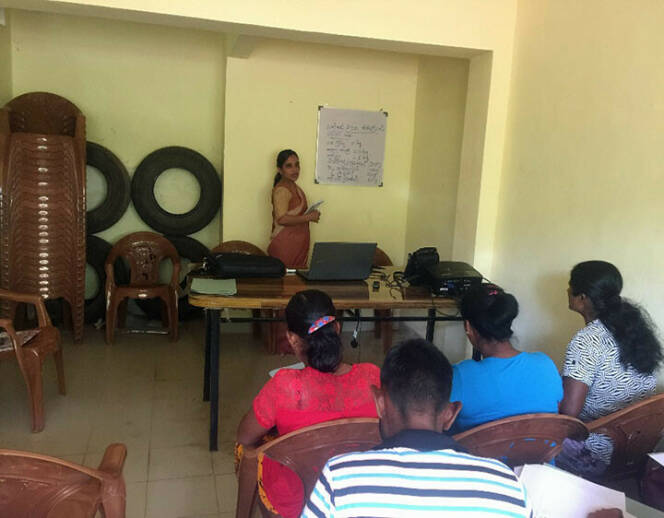
Whenever students follow a training at Aeres TCI, inevitably, they also make a plan to implement what they have learned back home. It was no different for Chandi Dharmarathna when she studied at Aeres TCI in 2018. She reflects on her time at Aeres TCI and shares what it was like to execute her plan back home in Sri Lanka.
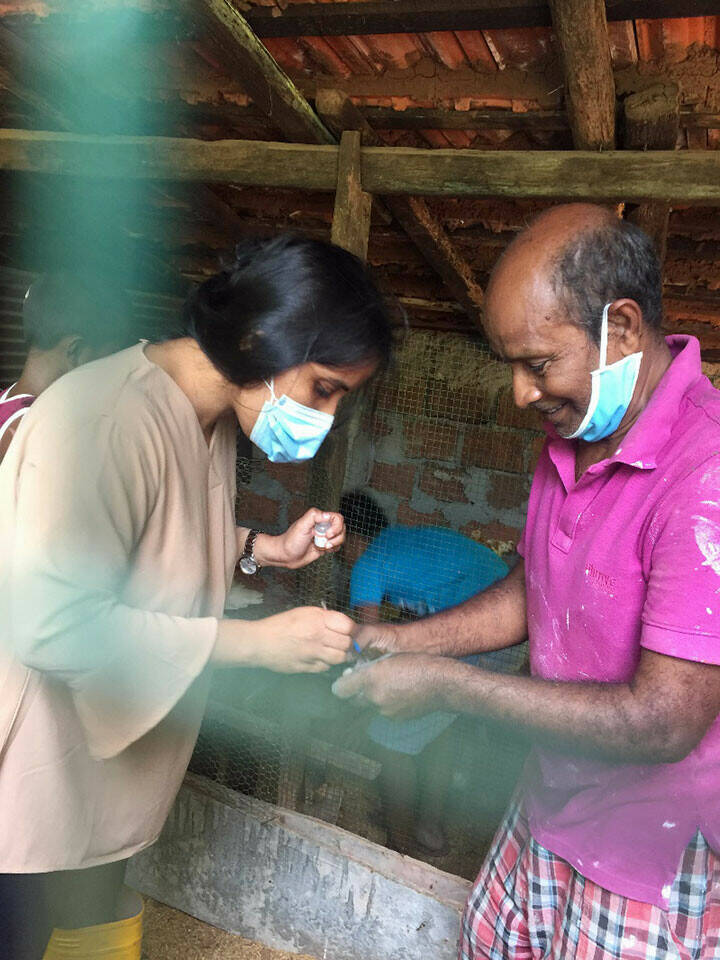
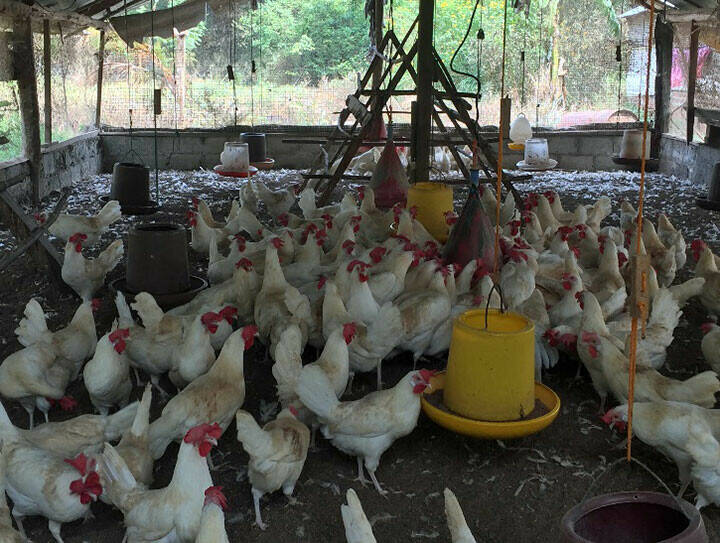
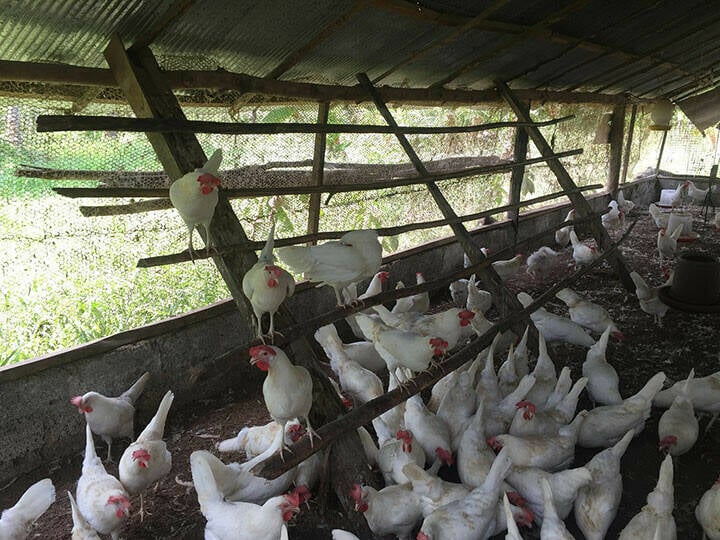
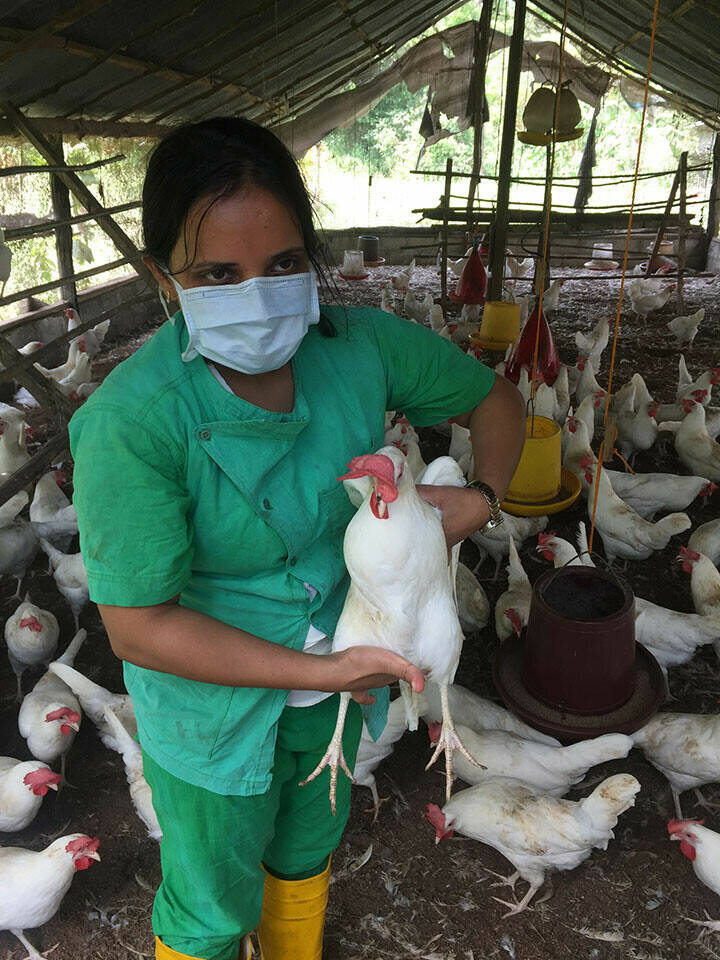
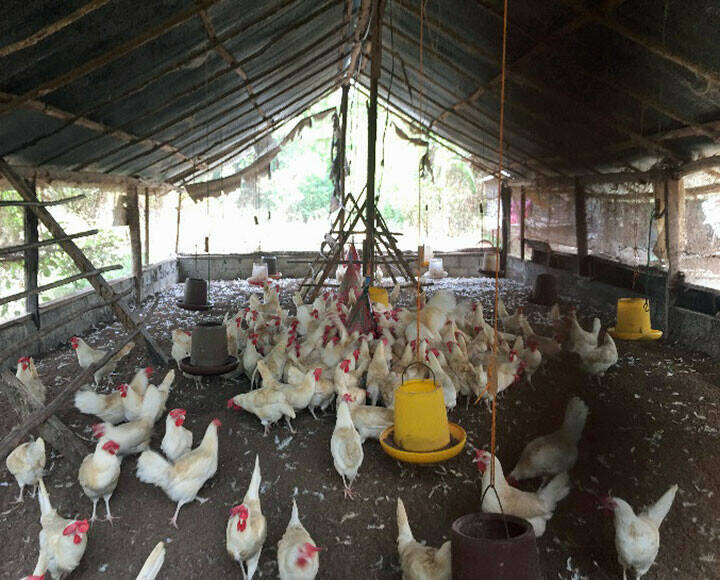
Aeres TCI-alumnus Chandi:
“Essential in making changes”
Back Home
Improvement
Plan

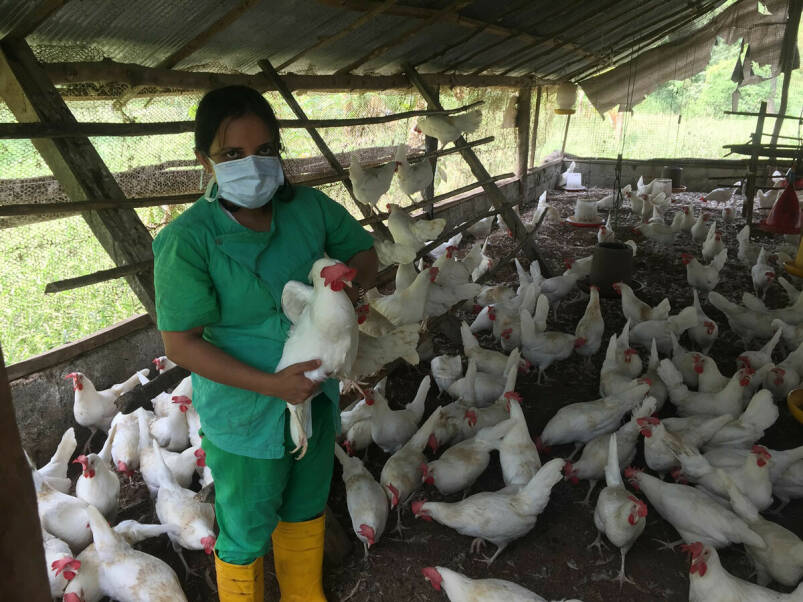

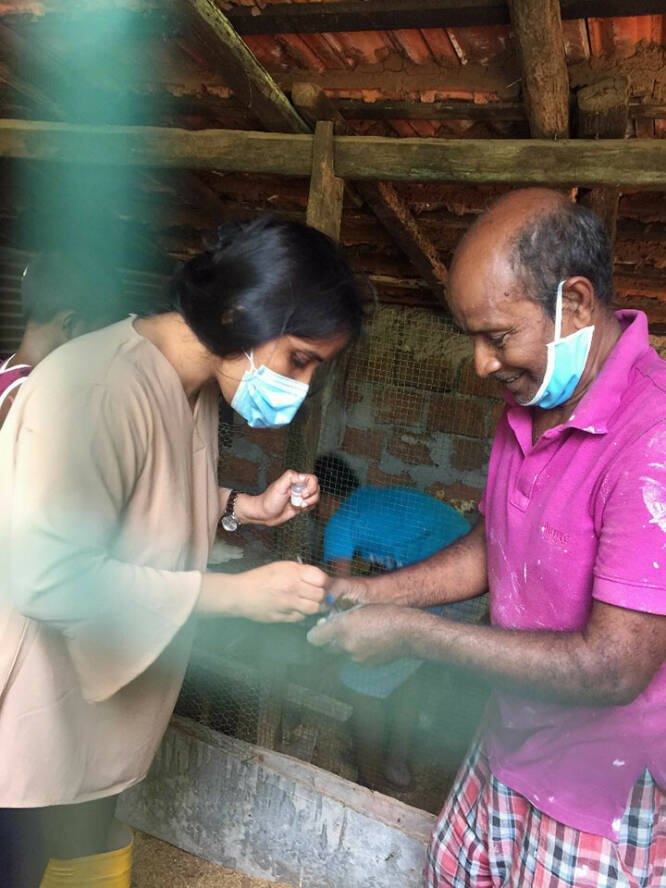
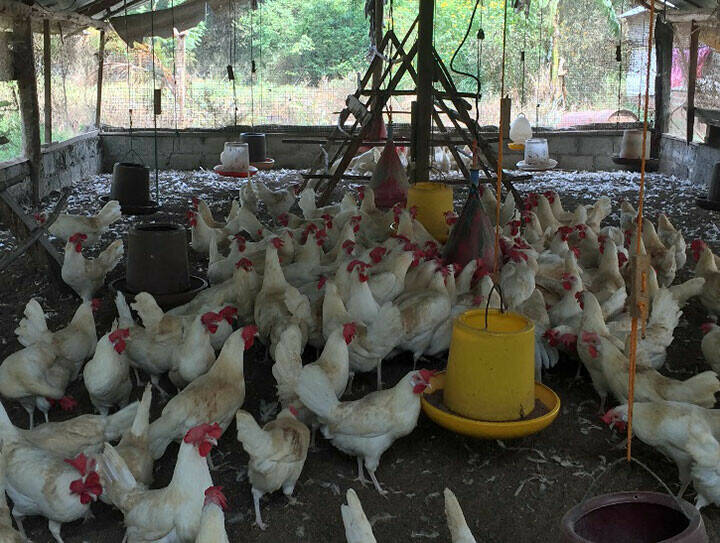
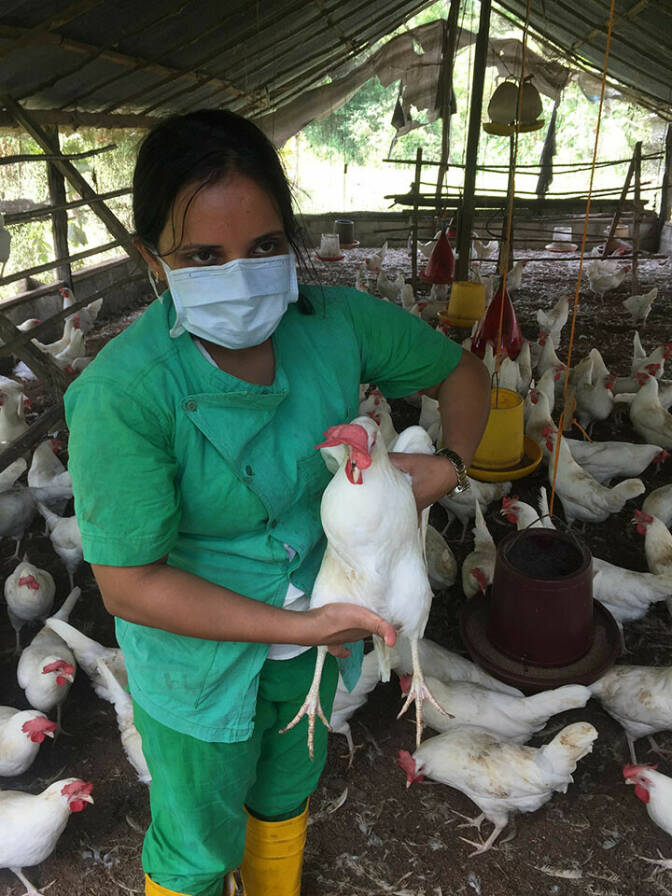
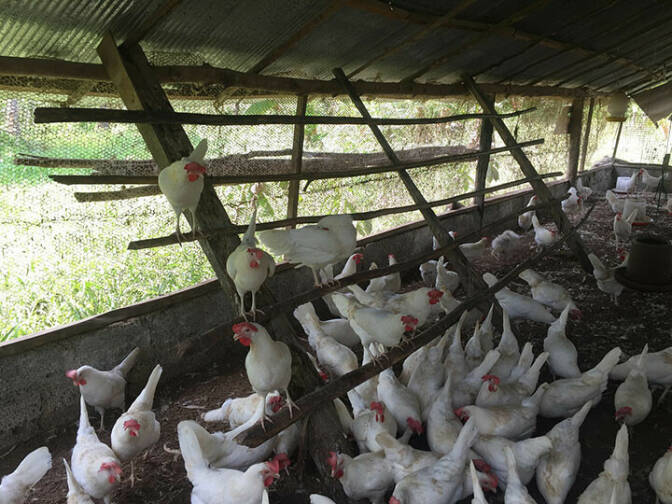
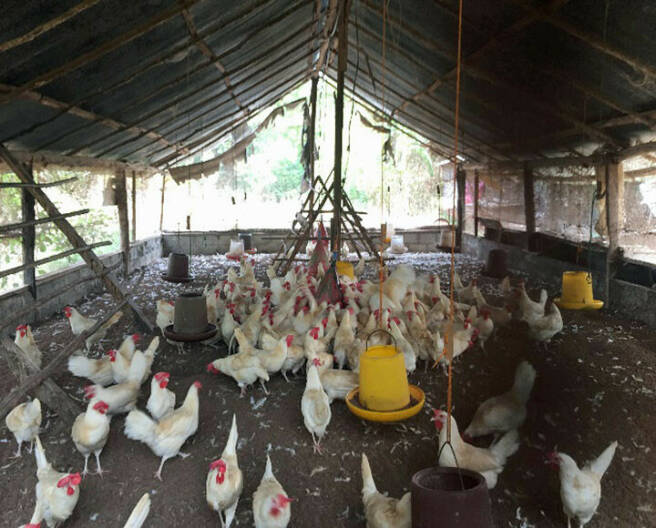

”
We work with government projects to improve production and nutritio.
After her return to Sri Lanka, Chandi organised a meeting with the farmer that she had selected for her Back Home Improvement Plan. “I visited him and some other farmers in the region and first of all they were very eager to hear what I had learned. They were really open to the advice and some even started to make changes straight away. As I explained, most of our farmers are barely educated and by sharing the knowledge I had gained at ATCI, I was able to help them without it costing a lot of money. It really helped them to improve their production and skills. I shared information on how to improve their feed, how to prevent the livestock from diseases and how to improve their management and I was glad to hear that after a few months they had positive feedback. They had been able to reduce the mortality rate and increase their production. Even more important is that they can pass that knowledge on to the next generation and to other farmers in their region. The farmer I had picked for my Back Home Improvement Plan has now even started to train other farmers in his region as well. That’s wonderful if you ask me!”
Chandi explains that it is wonderful to realise that an entire region of farming business can benefit from her knowledge and experiences gained at ATCI. “It is an honour to be able to help them get better!”
With the Back Home Improvement Plan students make a connection between two different worlds. For almost all of them, the situation in The Netherlands is incomparable to their home situations. There are differences in technologies, but also in work ethics, laws and the work environment. “Even country-wise, there are a lot of differences”, Chandi states. “For example, the climate, but also the development. We simply cannot copy and paste the way it is done in The Netherlands and implement it back home as is. No, we need to think on how we can take the lessons we learn and make them fit in our home situation. So, I feel like the Back Home Improvement Plan is a wonderful way to do so.”
Chandi explains that there a lot of differences between The Netherlands and Sri Lanka. “Back home you will barely find farmers that have been properly educated on their jobs. Most farmers are learning from the internet, or it has been passed on from generation to generation. They don’t have precise knowledge on how to go about animal management, or how to feed and things as such. So, there is a lot that we can improve, but on the other hand there is not much financial space. The farmers are not rich enough to do big investments. So, the question that I had to answer was: “How can we make changes, without it costing them too much money? And the answer to that was by training them and sharing knowledge.”
The abbreviation BHIP stands for Back Home Improvement Plan, an important part of the training at ATCI. The BHIP encourages students to translate whatever they learn at ATCI to practical output for their situation at home. “Before coming to Aeres, I was asked to select a farm in my locality”, Chandi explains. Chandi chose for a small-scale commercial poultry farm. “We were then given some topics of information that we had to collect information on. For example, what was the current situation in the farm? What were the challenges? And then, at the end of our training we made a plan on how to improve the production according to what we had learned. When the plan was finished, we had to present it. We also had to explain how we were going to improve that farm up to a maximum profit, while maintaining good management and also improving their feed quality.”
In her area the farmers work under the supervision of the government. “We work with government projects to improve production and nutrition.” And from that point of view, Chandi studied at ATCI for a period of ten months. “I studied International Poultry Management and Animal feed from August 2018 up until May 2019”, Chandi explains. Her time at ATCI was valuable to her as she was able to gain a lot of practical experience there. “During my undergraduate study here in Sri Lanka, I was not exposed to practical experience. So being able to get that at Aeres was very good. We worked in teams of international students under the supervision of the trainers. The hands-on way of teaching and actually gaining knowledge from experience, results in development of skills that will remain for a lifetime.”
Chandi Asoka is a veterinary surgeon from Sri Lanka. She works in the Kandy district. In her area you find dairy farmers, small-scale poultry farmers, and so-called backyard poultry farmers, and there are some goat farmers. Chandi is responsible for the livestock extension programme in her region. She mostly works with commercial, small-scale poultry farmers.
Whenever students follow a training at Aeres TCI, inevitably, they also make a plan to implement what they have learned back home. It was no different for Chandi Dharmarathna when she studied at Aeres TCI in 2018. She reflects on her time at Aeres TCI and shares what it was like to execute her plan back home in Sri Lanka.